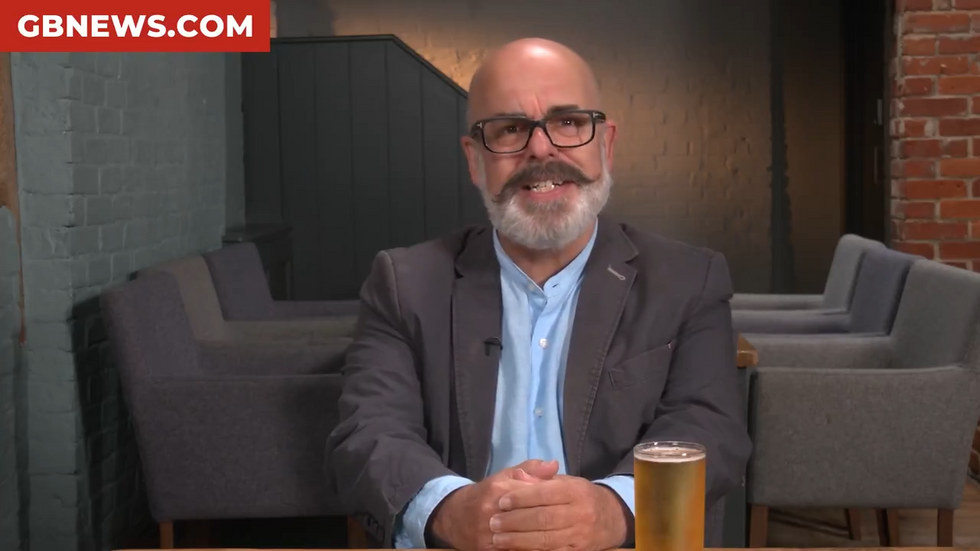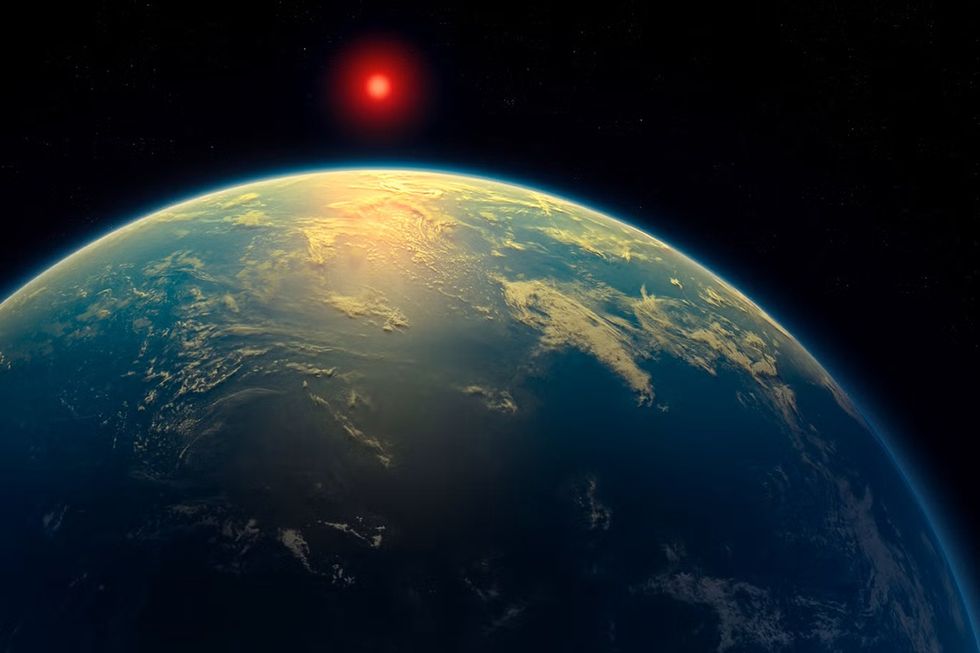Scientists have made a potentially ground-breaking discovery on distant exoplanet K2-18b
Don't Miss
Most Read
Trending on GB News
Historian Tony McMahon has voiced his firm belief in extra-terrestrial life, claiming there's "no reason aliens wouldn't have made contact" with Earth.
His comments come as scientists have made a potentially ground-breaking discovery on distant exoplanet K2-18b, which some experts believe could indicate the presence of alien life.
A recent study led by astrophysicist Nikku Madhusudhan at the University of Cambridge has detected dimethyl sulfide (DMS) in the atmosphere of K2-18b, an exoplanet 124 light years from Earth.
This discovery, made using NASA's James Webb Space Telescope, is particularly significant because on Earth, DMS is produced only by living organisms, primarily aquatic phytoplankton.

Historian Tony McMahon shared his belief in aliens
GB NEWS
McMahon told GB News: "I'm a believer in extra-terrestrial life, and I don't see why they wouldn't have made contact with us at some point.
"What's interesting is all these hotspots, these UFO hotspots. There's one in Liverpool, actually and of course there's the Falkirk Triangle up in Scotland, which is our very own Bermuda Triangle in the UK.
LATEST DEVELOPMENTS
"There's been loads of UFO sightings up there. I mean they have, they've had some interesting sightings up there.
"One guy had his trousers ripped off in the forest."
He added: "I think they've been to visit us. They've been out of luck.
"There's some theories that there's some theories out there that our politicians contact with them snd they have secret meetings in Antarctica with them."
K2-18b is considered a "Hycean" world, a term combining "hydrogen" and "ocean" to describe its unique characteristics.
Scientists believe the planet features a hydrogen-rich atmosphere and a surface covered with liquid water.
These conditions are generally considered favourable for supporting life.
The environmental features of K2-18b align with what researchers would expect to find on a potentially habitable world.

K2-18b is considered a "Hycean" world, a term combining "hydrogen" and "ocean" to describe its unique characteristics
PA
Previous attempts to identify biosignatures have often led to disappointment in the scientific community.
In 1975, Viking 1 and 2 Mars landers conducted experiments that initially suggested microbes might be digesting nutrients in Martian soil.
Later studies found non-biological explanations for the results, including reactions involving the mineral perchlorate.
A 1996 NASA announcement about a Martian meteorite containing structures resembling fossilised bacteria was similarly debunked upon closer analysis.









